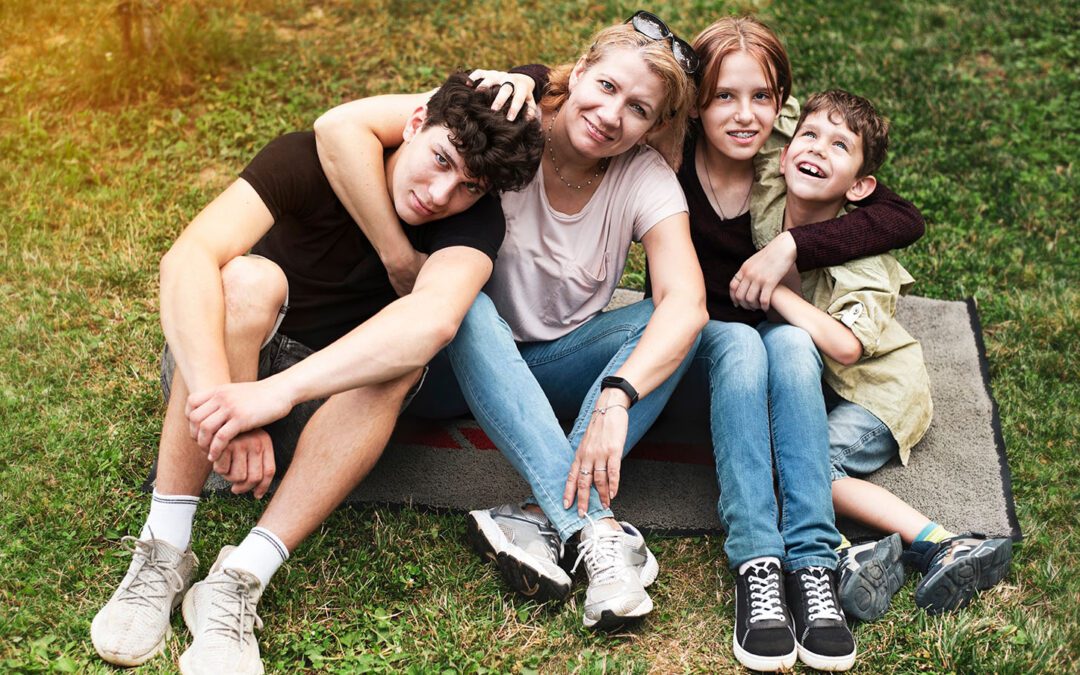Have you ever wondered if your child’s behavior is more than a teenage phase? They seem extra moody and anxious – so much so that you’re worried about a mental health disorder. Or perhaps drug use – or both.
Sometimes it’s hard to figure out a drastic change in behavior, especially when mental health and drug misuse might both be factors. Understanding how these challenges show up in a child’s life and sometimes co-occur is essential to keeping your child healthy and seeking appropriate treatment if necessary.
These dual disorders may develop at the same time or one might lead to the other. As a parent, it’s common to feel overwhelmed and frustrated when you’re not sure what’s going on or the best way to help.
Understanding the Risk Factors
Substance use and mental health disorders are tightly linked. Teens may self-medicate with alcohol and other drugs when a mental health disorder goes undiagnosed and untreated. Research shows that ADHD, PTSD, anxiety disorders, and depression can increase the risk of using drugs and alcohol.
And heavy drug use may lead to the development of a mental health disorder. For example, misuse of prescription medications can lead to manic states or severe mood swings and heavy marijuana use can trigger episodes of psychosis, especially in those with a family history of psychotic disorders.
The good news is that research also shows that diagnosing and treating mental health disorders can reduce drug use, and reducing drug use can improve treatment outcomes for mental health disorders.
Encourage Your Child to Seek Treatment
So how do you get your child to consider treatment if they have a dual diagnosis? Sometimes your teen doesn’t want to try treatment because they might miss out on school and sports activities or be resistant because of the stigma around mental health and drug misuse.
What’s a parent to do? It takes lots of encouragement and support–and starts with a conversation. Having open and honest conversations with your child is one of the pillars of Raising Healthy Teens, and this is a talk that will take patience, thoughtfulness, and practicality. To help you prepare, here are some guidelines.
- Make an effort to see matters from your child’s point of view. Acknowledging both the positive and not-so-positive aspects of engaging in treatment can help the conversation go more smoothly. Actively listen to hear your child’s concerns.
- Determine what’s important to your child and frame the conversation. Perhaps your child is willing to seek treatment for a mental health disorder, but is uncomfortable discussing their drug use. Follow their lead and talk about getting help for the disorder they’re willing to work on.
- Do your homework and be ready with treatment options. Look for programs that are a good fit for your child. Give your child more than one option and let them make the decision. Sometimes starting with meeting a counselor is less threatening than entering a long-term treatment program.
- Use motivation. Discussing the benefits of treatment—less stress, better sleep, and increased self-esteem, for instance—rather than which drugs to give up will help keep the conversation going. Some parents use incentives as a way to get their child to engage in treatment.
- Consider past attempts. If previous conversations about treatment didn’t go well, analyze why and try a new approach–offering incentives and using a collaborative tone of voice can often change the outcome of the conversation.
- Practice what you want to say.
Writing down what you want to say can be helpful. As you write, think about how your child might respond and go through different scenarios so you’ll be able to stay calm and manage your emotions if things get heated.
In Conclusion
Learning healthy ways to manage stress and anxiety may reduce a teen’s need to self-medicate. The family role in supporting a child with co-occurring disorders is critical. This includes everything from recognizing that there is a problem, to motivating a child to get help, and navigating the treatment system. Remember: you are the strongest influence in your child’s life and have the greatest impact on their health and well-being and you can make an impact by simply modeling healthy ways to cope with stress and anxiety.
For more information, check out these suggested resources.
Sources
Child Mind Institute, Partnership to End Addiction
https://drugfree.org/article/substance-use-mental-health-your-guide-to-addressing-co-occurring-disorders
